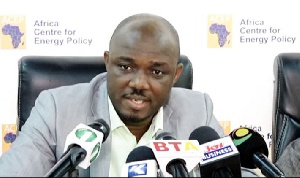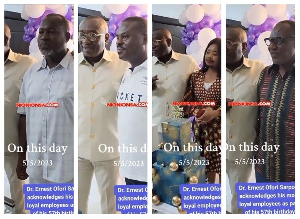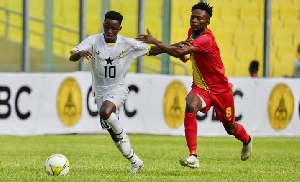Business News of Tuesday, 2 May 2017
Source: kasapafmonline.com
400MW Bridge Power Project: ACEP makes U-turn, describes as good deal
The Director of Operations for Energy Think tank, the African Centre for Energy Policy, Benjamin Boakye has described the 400-Mega Watt Bridge Power project, as a good deal for Ghana.
President of the Republic, Nana Addo Dankwa Akufo-Addo, cut the sod for the commencement of construction of the world’s largest LPG-fired power plant three days ago.
Bridge Power is a 400 Megawatt (MW) Greenfield power and liquefied petroleum gas (LPG) import, storage, and transportation infrastructure project that will be located in Tema near the Tema Oil Refinery (TOR). The project will be capable of being fueled by LPG, natural gas, and diesel.
Stage 1 will use five GE TM2500+ gas turbines and one purpose-built GE steam turbine in a combined cycle gas turbine (CCGT) configuration that will collectively generate 200 MW of power. Stage 2 will add another 200 MW through four GE LM6000 gas turbines and one purpose-built GE steam turbine, again in a CCGT configuration. Together, this will amount to over 17 percent of Ghana’s reliable generation capacity.
Bridge Power is being developed by the Early Power Limited (EPL) consortium, made up of Endeavor Energy, a leading independent power development and generation company focused on Africa; Sage, a leading independent Ghanaian energy trading firm; and GE (General Electric), the world’s premier digital industrial company.
ACEP raised red flags over the financial terms of the deal last year, when the previous government started it.
But speaking in an interview with Accra-based Citi FM, Benjamin Boakye praised both governments for eventually closing a good deal for the country.
“It’s very important for us to understand what the burden of government in that agreement. And that is what I’ve indicated that in the Put/Call Option Agreement, government’s burden is $667 million not the $953 million. So what government is interested is the burden on it, and the government is not providing the funding. This is as a result of the risk that is involved. It doesn’t mean that government is costing that money, No. The funding is entirely the investor who is supposed to provide it. The cost of the financing is entirely the investor. We think that it is less risky, instead of providing a consent agreement, it’s a Put/Call Option Agreement and so i think that it is a good agreement that has been entered into by the previous government and the current government has continued with it. And I think that if we go this way, Ghana will tend to benefit more. If new government always claiming that the previous governments have entered into bad deals it is not always the best way to go.”











